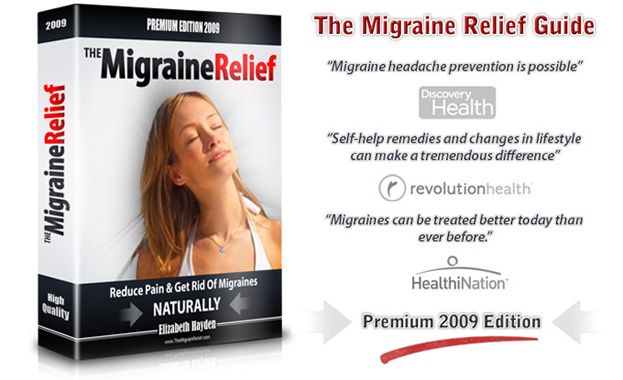Relief For Migraine Sufferers
If you have ever experienced a migraine headache, you know how desperately you crave migraine relief. I used to have them occasionally and if anyone even so much as walked into the room I was in, I wanted to scream. Every noise and slightest motion felt as if something were pounding on my head with a sledge hammer. Nausea usually followed. I can honestly say I do not miss them at all. I have come to understand that mine were mainly stress induced and by dealing with and removing the sources of stress, I have not experienced one in years.
Aspirin is simply not strong enough to be very effective for migraine pain. There are over the counter migraine pain medications and some of the non-steroidal, anti-inflammatory drugs, such as Aleve, do help. Most people find, as I did, that a quiet, dark room is effective. If you are prone to having visual disturbances such as flashing lights and blind spots, you will especially want to lie down in a quiet dark place. Some people find that ice packs or cold towels applied to the back of the neck or around the head provide some level of relief. If you take these measures as soon as you feel an attack coming on, the severity may be diminished.
For severe migraine attacks that don't respond to non-prescription drugs, you should seek advice from your doctor. This kind of headache can last up to 72 hours, so you may want to consider prescription drugs to treat or prevent attacks. A triptan is usually the first drug of choice. Ergotamines tend to be less effective for pain, but some patients do respond well to them. Depending on the severity of the headache, your doctor may recommend taking one of these drugs in tablet, injectable, or suppository form.
More medication is not necessarily better, so guard against overuse which could result in rebound headaches. In general, these drugs should not be taken for more than nine days in a single month. If you feel that need them more frequently, speak to your doctor about preventative medications. Beta-blocker drugs, anti-seizure drugs, and sometimes tricyclic antidepressants may help to prevent attacks, but these are medications which should be carefully monitored by a physician. This type of medication is normally given starting at a very low dose and gradually increasing over time. It may take 2-3 months for its full effect to be apparent. Preventative medication application may be needed for 6-12 months or longer.
Of course, if you have become aware that certain foods or activities can trigger your migraines, it makes sense to avoid them if at all possible. If stress is a factor, many people find that they need to incorporate certain lifestyle changes in the hopes of reducing the frequency of attacks. In addition to medication, meditation, massage, sufficient rest, proper diet, and regular exercise may prove to be invaluable for migraine relief.
